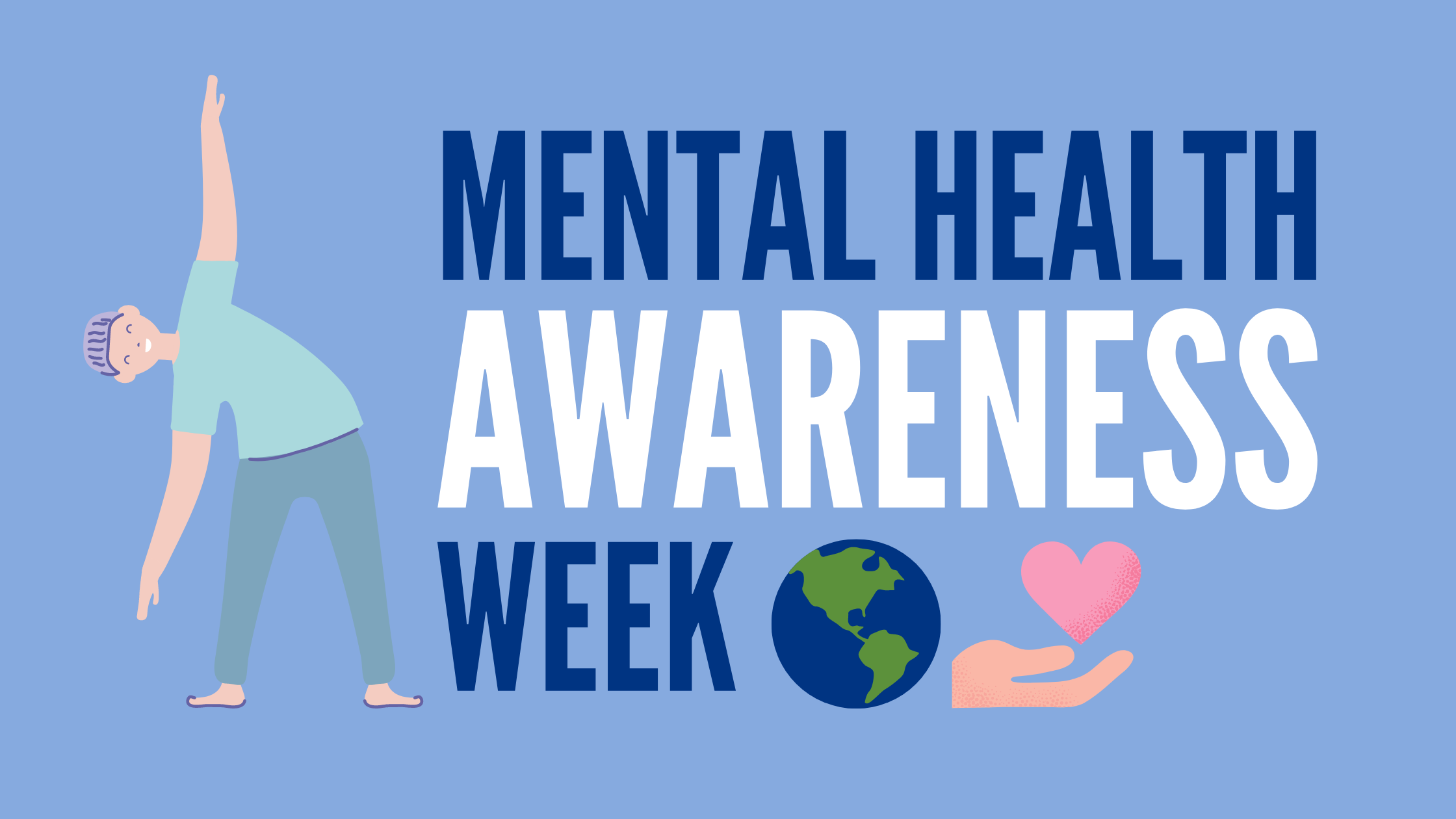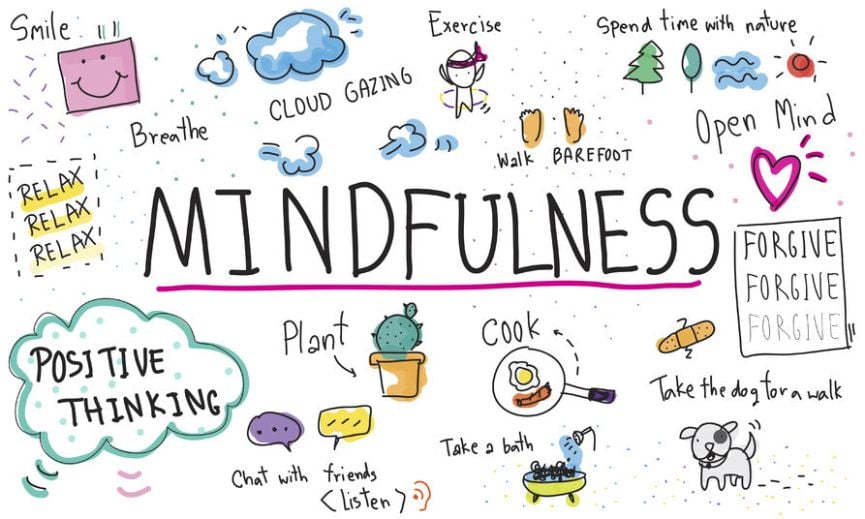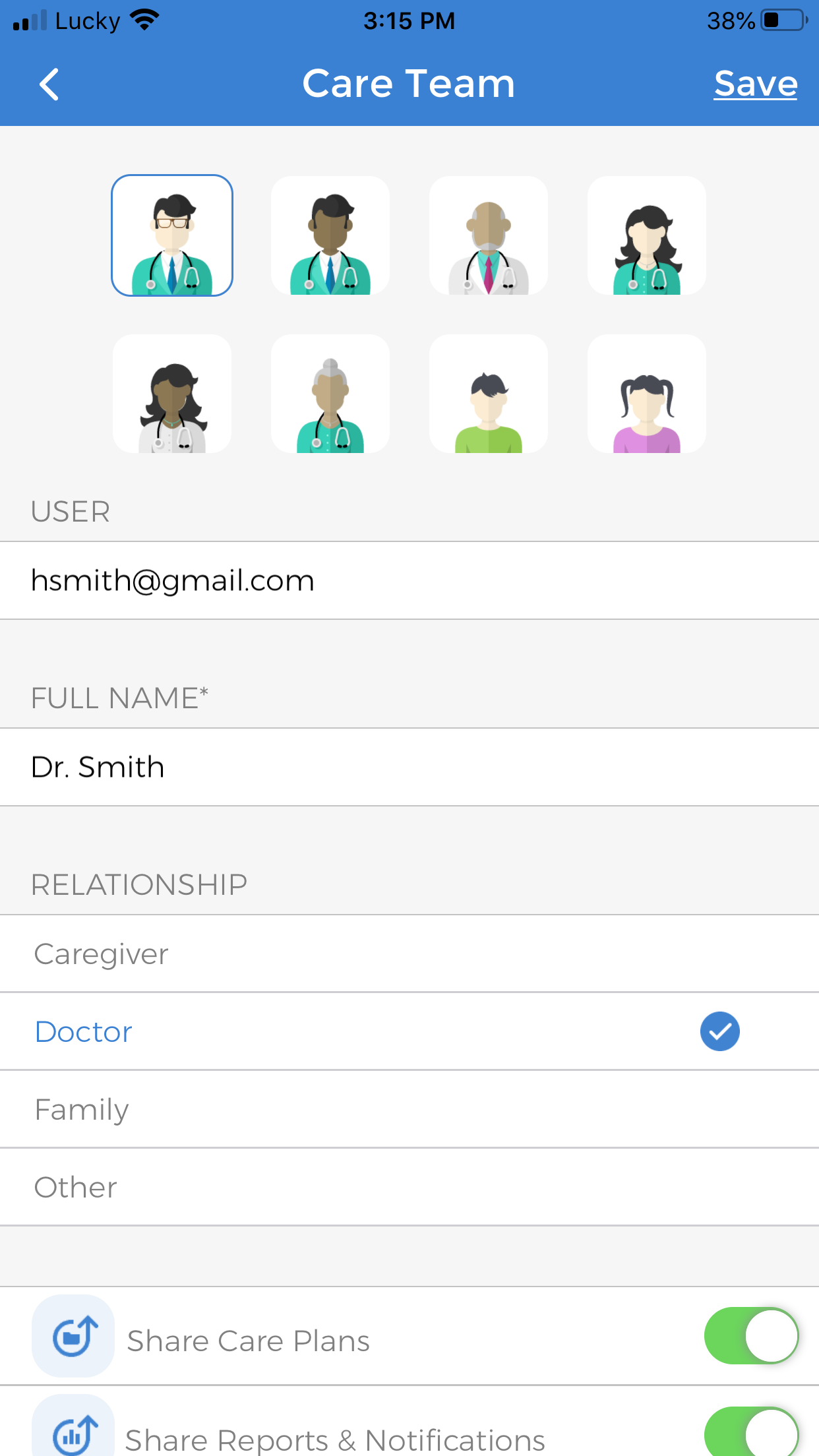
October 4th, 2020 to October 10th, 2020 was Mental Health Awareness Week. This international week is dedicated to raising awareness of mental health issues around the world and mobilizing efforts in support of mental health. The week provides an opportunity for all stakeholders working on mental health issues to talk about their work, and what more needs to be done to make mental health care a reality for people worldwide.
Modern life might offer a lot of advantages but, at the same time, it often pushes us to rush and experience high levels of stress. It can be easy to grow tired and fatigued we go from one task to the other without taking a break. This fast-paced lifestyle can become overwhelming and now more than ever, mindfulness has become an important and necessary daily practice. A mindfulness meditation journal can help one practice daily self care and keep track of their thoughts and emotions.
Taking care of your mental health
Here are some tips for taking care of your mental health (from the Government of Canada):
- Know and accept that life can be challenging.
- Know and accept your strengths and weaknesses.
- Set realistic goals for yourself.
- Accept yourself and others. This is the basis of self-esteem.
- Learn to recognize and understand that you and others have both positive and negative feelings.
- Create a sense of meaning in your life by learning and trying new activities, like starting a hobby.
- Create healthy, trusting relationships with people who accept and support you.
Benefits of taking care of your mental health
Engaging in daily self-care practices to stay mentally healthy can:
- Increase coping skills (how we handle stresses)
- Improve self-esteem (feeling confident in your worth and abilities)
- Improve resiliency (your ability to successfully move on after a negative event and regain control of your life)
Increasing coping skills, self-esteem and resiliency encourages people to:
- Create healthy relationships
- Positively interact with their community
- Talk openly about their mental health, including their needs and wants
You can take care of your mental health using a variety of ways – this can range from practicing mindfulness meditation to attending therapy sessions. It is important to identify which ways work best for you!
What is mindfulness?
The practice of mindfulness and meditation, has been known to reduce stress, lower blood pressure and even increase emotional resilience. When we learn to become mindful in everyday life, we also learn to take a break and perceive life from a new perspective.
Mindfulness is a practice that teaches us to focus on the present moment. Often times, individuals practice daily mindfulness through medication. The practice is highly beneficial for those who experience chronic stress, depression and anxiety. Mindfulness and meditation can also help one age gracefully and healthily. Mindfulness has both physical and mental health benefits.
An ancient practice, meditation can help individuals to become more attentive to their own selves and discover a higher level of self-awareness. Regardless of the chosen form, meditation can improve mental health and help one achieve an emotionally-stable state.

Benefits of mindfulness and meditation
Meditation is one of the most effective tools against chronic stress, anxiety and depression. It can also reduce the intensity and frequency of chronic pain, allowing one to experience peace and well-being. Recent studies have demonstrated meditation to be beneficial for both neurological and cardiovascular health.
A major benefit of mindfulness meditation is the reduction of stress levels. This practice builds resilience to stress and allows one to come to terms with their emotions and thoughts. Moreover, mindfulness meditation helps to regulate emotions, improving one’s mood and ability to adapt to daily stress.
For people living with chronic conditions, mindfulness meditation can enhance one’s ability to deal with the associated symptoms, making the whole experience more manageable and comfortable. The practice has a spiritual effect, allowing one to recover from trauma and return to the best possible state of health.
People who practice mindfulness and meditation on a daily basis enjoy better health overall. This is because these practices enhance health-related behaviours, with people visiting the doctor for periodic investigations, adopting a more active lifestyle and avoiding alcohol, cigarettes, etc.
Reduction of chronic pain and symptoms
Mindfulness meditation, in those who suffer from chronic low back pain, has excellent pain relieving properties and it improves the ability to function independently. In cancer patients, it helps not only with the physical pain but also with emotional issues, decreasing both stress and anxiety.
The practice has been known to address depressive symptoms, enhancing the self-regulation of emotions. As one takes a step back from the negative emotions, he/she will discover more effective coping strategies. This practice can be useful in identifying potentially harmful emotions, with acceptance being the key (as opposed to fighting these emotions).
By engaging in this practice, you will also improve the overall functioning of the brain. Mindfulness meditation brings a higher level of self-awareness, attention and focus. It stimulates perception and clarity in thinking, allowing one to become calm and at peace with himself/herself. At the same time, it helps one feel connected to a higher purpose.
When we dedicate our time to mindfulness and meditation, we become more patient and accept ourselves as we are. In turn, this helps us improve our relationships with other people. We protect ourselves against alcohol and drug abuse, as well as other destructive behaviours. Mindfulness and meditation can improve our psychological well-being and thus, overall quality of life.
How to practice mindfulness
If you are interested in practicing mindfulness meditation, you first need to find a good location that is comfortable and quiet. Choose a quiet spot in your home, with little or no distraction (clutter included). If possible, opt for a place that has natural light or sit outside. Ensure that you are not distracted by noise.
In the beginning, you can decide on an amount of time to practice, such as 5 or 10 minutes. You can opt for morning and evening sessions, increasing the duration gradually. Always go into your session with an open heart, welcoming the peaceful atmosphere and self-awareness.
You can choose to sit on the floor or on a chair. You can also use meditation cushions for comfort. What matters is that you select a position in which you feel comfortable. If you want to meditate outside, you can sit directly on the grass or on a bench.
You can cross your legs comfortably in front of you. You can also adopt a relaxing seating position, making sure that the feet are firmly placed on the floor. Make sure that your spine is straight but also avoid any rigid positions, as these will prevent you from relaxing.
The arms should be maintained parallel to the upper body. You can then let the hands drop on the legs. Once you have adopted the right position, you should try to relax. Concentrate on your breathing, and the sensations experienced in different parts of the body. Breathe in and out, and refrain from giving into various thoughts. Make a conscious effort to return the attention to the actual breathing. As you breathe in and out, observe your thoughts, without having an actual reaction.
Using the CareClinic app as a mindfulness journal
CareClinic is a health app that one can use to keep track of every aspect of your health related to mindfulness meditation. You can use the application to establish reminders for your meditation sessions. These reminders are sent in the form of push notifications or as text alerts, and there is also a snooze feature that can keep on reminding you about your sessions.

You can use the application to record any symptoms you are experiencing, and also determine how meditation and mindfulness contributed to improving your general well-being. The app includes a meditation journal, which you can use to write about your emotions, thoughts and feelings. You can also record entries about the benefits of meditation over your emotional state.
In making a diary entry, take a moment to think about the things you want to write. Use plenty of adjectives to describe how you are feeling at the moment, including physically and mentally. You can turn to journal into a daily habit, making one entry in the morning and another in the evening, before going to bed. Journaling is highly beneficial for stress release, allowing you to fight irrational or dysfunctional thoughts.
Within the application, you can establish a comprehensive intervention plan, including types of meditation, mindfulness practices and breathing techniques. The CareClinic health app can help you turn mindfulness meditation into a daily habit, one that is beneficial for both physical and mental help. CareClinic is a health app which is continuously developed and improved by a team of specialists, in accordance with the feedback provided by various users. Furthermore, the application is an excellent choice for those who are interested in mindfulness meditation and other similar practices.
Importance of therapy
Aside from meditation and mindfulness practices, therapy is also a great and useful tool for engaging in self care and taking care of your mental health. Therapy is not just for people dealing with mental health issues or an active crisis! Therapy is an opportunity for self growth and it’s important to seek it when you’re noticing any signs of struggling or just need someone to talk through things with.
Here are some common reasons for seeking therapy:
- Feeling stuck or anxious
- Going through a traumatic event or challenge
- To gain a deeper understanding of yourself and your emotions
- Learn new coping skills
- Add to and strengthen your support system
Finding a therapist
It is important to find a therapist who is a good fit for you and your personal mental health needs.
Below are some things to keep in mind when trying to decide if your therapist is a good fit for you:
- Your therapist should have specialized training in your area of trauma or struggle.
- Are you able to relate to your therapist? Do you have similar backgrounds or relate in terms of your identities and experiences (eg. race, sexuality, religion)?
- Does your therapist use methods of therapy that work for you (eg. cognitive behavioural therapy, spirituality)?
- Do you connect with their attitude and personality (eg. serious, light-hearted and humorous)?
- Everyone has different needs in terms of what supports work best for them! Make sure that you are continuously communicating your needs and preferences with your therapist and support system.
How do you find a therapist?
Knowing where to start in terms of getting therapy can be very overwhelming. One must often invest a lot of effort and research into finding a therapist who is a good fit for you, but building a long term connection with your therapist is definitely worth it and will benefit your mental health in the long run.
Here are some ideas for where to start in term of finding a therapist who is a good fit for you:
- Ask for referrals from friends or family.
- Google online therapist directories for people and practices in your local community.
- Ask and interact with social media groups who represent your community or the type of support you are looking for.
It is important that you feel comfortable and hopeful with your therapist. Your therapist should be open to your questions and empower you in your decision making.
The CareClinic app is a great tool for keeping track and setting reminders for your therapy sessions. You can also record any thoughts or emotions related to each session in the journal section of the app. Moreover, you can track your mood as well prior to and following each therapy session, and view trends in the Reports section of the app at the end of every week or month.
Other ways to take care of your mental health
Other methods for de-stressing and practicing self care may include yoga and other meditative movements like hiking. You can also engage in animal assisted therapy from emotional support animals (eg. dog therapy). Self healing workbooks and journalling (either handwritten or using the CareClinic app journal function) can also be very helpful. Engaging in self education activities such as listening to podcasts and reading self-help books can also assist you with finding coping mechanisms and self-care activities that work for you.
Tracking your emotions with CareClinic

People often like to use CareClinic as an emotion logging diary. The app helps in identifying and analyzing your emotions in depth using correlations.
Every time you experience an emotion, you can return to the application and create a diary entry. You should mention the event or situation that led to the emotion in question, as well as any other issues you are dealing with. For example, you can mention if you also felt sad, anxious or depressed. This is a journey towards yourself, and you should be willing to do the hard work, as tracking emotions will keep you away from mental health issues.
By using CareClinic as your emotion tracker app, you can gain clarity with regard to your emotions. Use the built-in journal to get more organized and effective in identifying emotions and associated episodes. Strive to be as descriptive as you can, mentioning both positive events and negative situations.
The information you have recorded in the journal is summarized in charts and reports, which you can keep for personal reference. However, you might also want to consider sharing that report with your therapist or caregivers. Your healthcare provider can then adjust your therapy accordingly, suggesting new therapy goals to pursue or any changes that need to be made. The report can also be exported as PDF document for future reference.
Using CareClinic to manage your mental health care
You might also want to add information about the solutions you have tried, in order to manage your emotions more effectively. For instance, cognitive behavioural therapy can help people who suffer from depression, anxiety or chronic stress. It helps them acknowledge their emotions and develop effective coping strategies.
Other types of therapy might help one interpret stressful situations in an objective manner. Unfortunately, in most situations, distorted thoughts affect the way we process an event and the associated emotions. Therapy can help us eliminate those dysfunctional thoughts and replace them with healthy, appropriate and resilient ones. Additional solutions include diaphragmatic breathing, meditation, relaxation and using mindfulness journal prompts.
Mental Health Awareness Week should be every week!
Mental health is necessary for living a healthy life and a main factor in overall health. Good mental health allows you to feel, think and act in ways that help you enjoy life and cope with its challenges. Building a supportive community is an important way to improve mental health. It is important to make meaningful connections with your family, friends, peers and members of your community. It is also important to engage in personal self-care practices daily and practice mindfulness. You can use CareClinic as a mindfulness journal and to record any ideas for mindfulness journal prompts. Mental health should be at the top of your priority list every week, and always remember that it is okay to ask and seek help when you need it.


